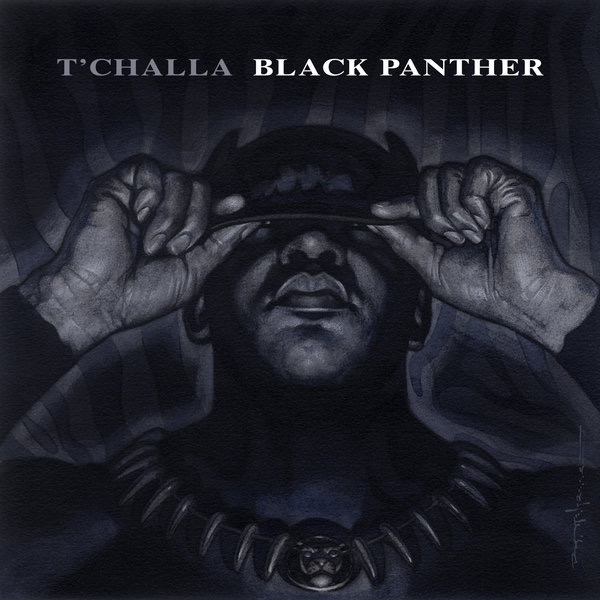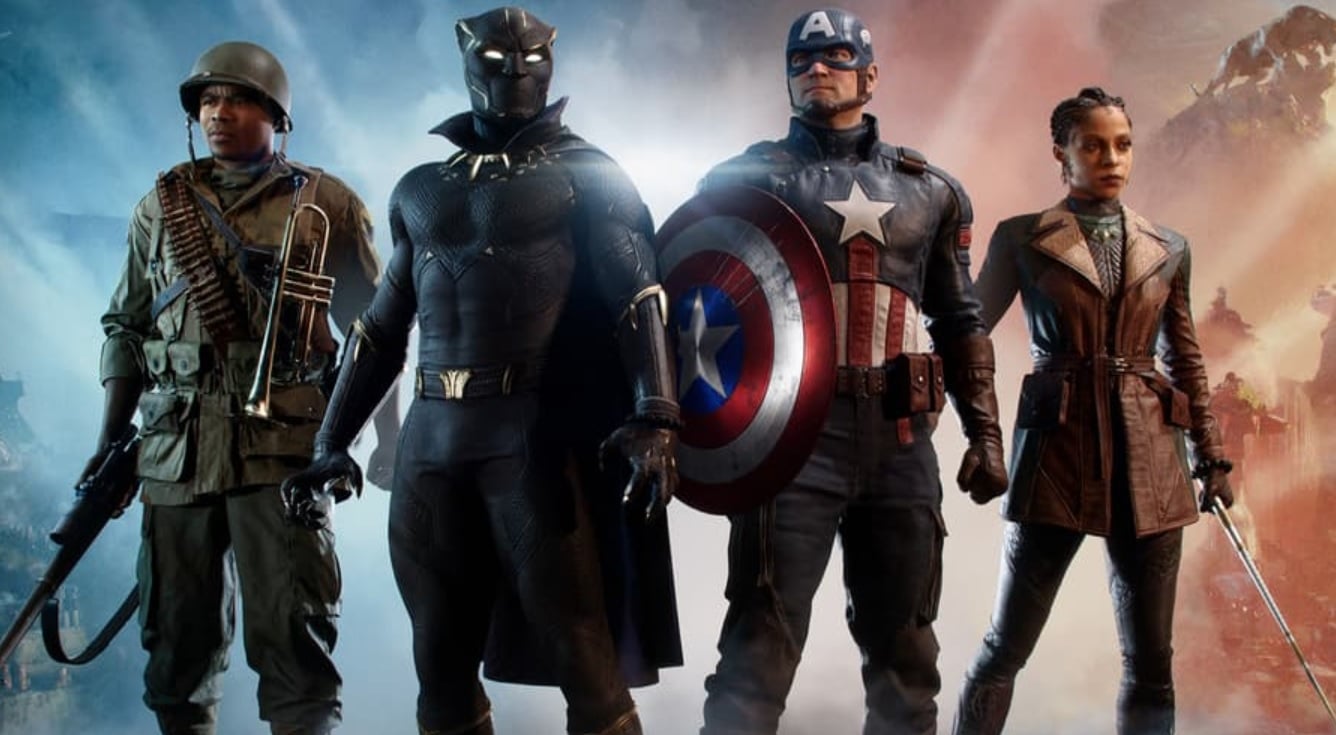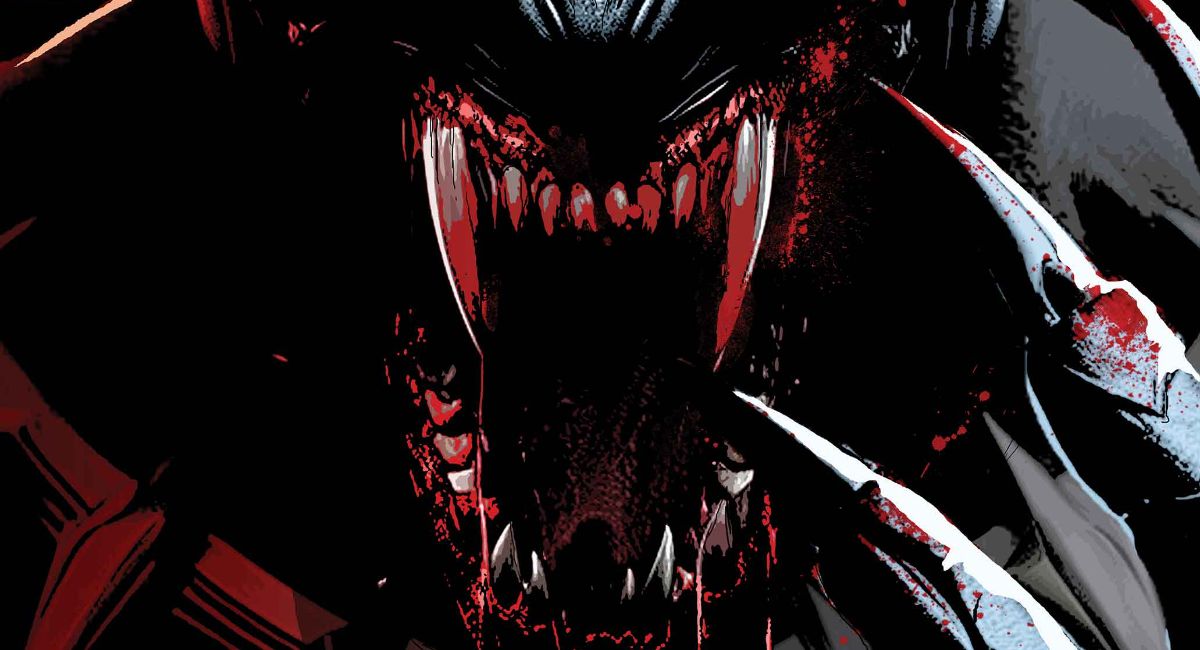There is no matter more important in the United States right now than the matter of race. Between mass incarceration, permanent economic disadvantages, lack of access to health care and education, police shootings and the rise of overt racism it’s never been clearer that there are two Americas, and if you’re black, you don’t get the good one.
Comic books have had a pretty dismal track record in this regard. More than two and a half years ago I wondered why there weren’t more black writers in comics, and there isn’t one word of that piece that isn’t equally applicable now. And that’s shameful. In my career from my position of privilege I’ve seen overt and covert prejudice, with people’s talent judged purely on their skin color. Time after time. And you know, I don’t want that to be my America or my comics industry. And it shouldn’t be yours.
So this tweet was pretty cool.
https://twitter.com/tanehisicoates/status/646375815396085761
Marvel’s many missteps and awkward statements on the subject of race of late may have been leading up to the genius stroke of hiring Ta-Nehisi Coates to write Black Panther, but it doesn’t give them a pass.
And yet it was very cool.
Given how even talking about race—let alone admitting you are part of the problem—makes makes white America so uncomfortable, Coates’ National Book Award nominee Between the World and Me is the necessary book to confront our assumptions, in the tradition of Jams Baldwin and Toni Morrison. Hiring the guy who wrote the book on race, a brilliant thinker and writer, is a smart move for anyone, but did anyone think the logical follow-up for him would be to write…a comic book?
In 2015 America there may be no job that is more important. Coates showed off his comic book knowledge in an April interview with Vulture’s Abraham Riesman:
The great questions that people have been asking at least since the ’70s are: Why are comics so deeply tied to superheroes? Why are superheroes so deeply tied to comics? And, why do the medium and the genre have such an enduring marriage?
Superheroes are best imagined in comic books. The union between the written word, the image, and then what your imagination has to do to connect those allows for so much. I always feel like when I see movies, I’m a little let down by the [digital] animation. I want to hear the voice in my head, you know? When I see Bruce Banner becoming the Hulk, it’s only a picture. My imagination has to do some of the work there, to impute feeling and everything. We’re talking about something that’s so surreal it’s just not possible within the world as we know it. So that requires a form that is not so literal. Animation, movies, these could be literal — Avengers movies will always disappoint me. X-Men [movies] will always disappoint me.
Given both his comic book bona fides and his knowledge of how economics impacts society, Coates answered questions about his run on Black Panther on Twitter yesterday with obvious glee. This is but a sampling:
https://twitter.com/tanehisicoates/status/646705671992385537
https://twitter.com/tanehisicoates/status/646711794698985472
https://twitter.com/tanehisicoates/status/646724660189601794
https://twitter.com/tanehisicoates/status/646724807225159680
https://twitter.com/tanehisicoates/status/646725873882763264
https://twitter.com/tanehisicoates/status/646726215613681664
https://twitter.com/tanehisicoates/status/646727086179262464
https://twitter.com/tanehisicoates/status/646728283283955712
https://twitter.com/tanehisicoates/status/646729595828502528
https://twitter.com/tanehisicoates/status/646730499608715265
https://twitter.com/tanehisicoates/status/646730726646382593
https://twitter.com/tanehisicoates/status/646730927268331520
https://twitter.com/tanehisicoates/status/646731693525725184
https://twitter.com/tanehisicoates/status/646732450438246400
https://twitter.com/tanehisicoates/status/646733094620430336
https://twitter.com/tanehisicoates/status/646736246539206657
https://twitter.com/tanehisicoates/status/646736715827277824
https://twitter.com/tanehisicoates/status/646737108883906560
https://twitter.com/tanehisicoates/status/646753906324832256
Coates’s Black Panther isn’t going to write all the wrongs of society or even comics, but it’s a step in the right direction, and a bold step towards content that actually matters. Rob Salkowitz wrote about it at Forbes yesterday:
Breaking Down Cultural Barriers. But seeing this story only through the eyes of race and diversity misses another important cultural aspect. Ta-Nehisi
Coates is a member of vanishing breed of public intellectuals, a term that now seems as quaint and outdated as “philosopher king.” He happens to write primarily about race and politics, but he is influential because he applies his knowledge and eloquence to the serious study of public issues, and seems to make a good living at it.
Why is someone like him writing a superhero comic book? The simple answer appears to be that, like many smart folks of his generation, he has always liked them. Coates grew up in the 1980s, when the medium was maturing and even mainstream comics began engaging with real-world issues and more sophisticated formal techniques. The Times piece talks about conversations he had with Marvel editors in the spring of 2015 that led to today’s announcement, largely centering on his affection for the character and his nostalgia for the stories of his youth.
The Washington Post’s Yanan Wang also considered the territory:
In “The Case for Reparations,” a sprawling cover story published in the Atlantic last year, he details the long history of inequity between white and black Americans. But his analysis extends far beyond the Civil War, as he addresses the racial division of wealth in the 20th and 21st centuries.
Among Black Panther’s range of powers — from hunting to inventing to acrobatics — is the possession of the combined strength and knowledge of every Wakanda chieftain who has held the title of “Black Panther” before him. Likewise, Coates’s writing draws richly not only from history but also from the literary style of earlier public thinkers, most conspicuously James Baldwin.
Not everyone was happy, however, as Graphic Policy rounded-up:
Coates is a talented writer, having mostly written as a journalist for a who’s who of news outlets as well as writing two books. He hasn’t written for comics, but is a long time fan. Being unproven in the comics realm has brought criticism of the choice by Marvel, with charges of the publisher overlooking the numerous talented persons of color that have proven themselves in the medium already.
Some pointed out that this decision sends the signal that for a person of color to be hired by Marvel they need to be extraordinary in their ability and talent.
Relevant tweets in the link.
Black Panther will not be Marvel’s first significant statement on race. Axel Alonso was the editor on Captain America: Truth by the late Robert Morales and Kyle Baker, a story that brilliantly mixed the real life Tuskegee experiment with the fictional super serum experiments to tell the story of Isaiah Bradley, the first Captain America. The books is out of print and it goes for $70 on Amazon, but if you can find a copy, read it.
This also doesn’t mean the entire comics industry doesn’t need to try harder. This isn’t a matter of taking jobs away from white men, it’s a matter of giving new voices a chance, voices that have not been allowed to get that chance because of that overt and covert prejudice I talked about earlier. A diverse industry is a strong industry. As the race to replace the first African-American president devolves into a jingoistic contest to see who can be the most divisive and discriminatory, the true hope for our future lies in taking advantage of the talents of ALL people. I know that’s an idealistic viewpoint, but I can keep dreaming.
I’ll end this with a link to David Brothers latest essay on how important it is to talk about race in a measured and thoughtful way.
Diversity isn’t about us getting a look at the expense of anybody else. It’s about everybody getting a truly fair shot.
It is important to be precise. It is important to avoid carelessness. When women speak out, when people of color speak out, they’re often doing so from a place where they are not the most powerful voice in the room. We are constantly questioned—the old saw is “you have to work twice as hard for half the credit.” This is why it is important for writers to be precise, to avoid carelessness, because it is very, very easy for imprecision and carelessness to stop a conversation dead.
I’ll keep trying. We should all keep trying.









Beautifully put, Heidi.
Has he decided who will draw Panther when Stelfreeze is late on the third issue?
I wish people danced through the streets tossing flower petals like this whenever people like Kyle Baker or Ho Che Anderson or Kieth Knight put out new books.
Cartoonists who have already devoted their lives to the craft and discussing issues of race in ways that don’t feel like a corporate pr stunt.
Is “Black Panther” the “Wonder Woman” of the Marvel Universe?
Discuss.
“Hiring the guy who wrote the book on race, a brilliant thinker and writer, is a smart move for anyone, but did anyone think the logical follow-up for him would be to write…a comic book? In 2015 America there may be no job that is more important.”
Uh…what?? Doctor will always be a more important job than comic book writer.
Also, no matter how well written a Marvel comic on race relations is, it will never have the cultural impact of something like Run the Jewels 2 – an album that perfectly encapsulated most of the race issues in the country and was damn popular, too.
I mean, I like comics and everything, but Marvel hiring one black man to offset all the truly idiotic things they’ve said about diversity in comics is pretty weak.
No, Panther is not Marvel’s Wonder Woman. T’Challa has a personality and purpose, he’s just not a big name. WW is the opposite – a big name with no personality or purpose.
” WW is the opposite – a big name with no personality or purpose.”
Wow, are you sorely misinformed.
@Erik – how so?
@Zach – Read any number of runs – Moulston’s original, Perez, Jimenez, Simone, Rucka, Azzarello – she has distinct personality and purpose. Just like T’Challa.
@Erik – I’ve read a couple of those – Jimenez, Simone and Rucka, as well as the Heinberg arc. I don’t really see any distinct personality. A very generic hero who sorta vaguely is supposed to be an ambassador but generally just ends up punching people.
He might be enjoying himself now, but I can’t help wondering how he’s going to feel in a years time when he looks around, sees he’s still the only black writer at Marvel and realises he literally let someone hire him as The Token Black Guy.
@RD – And so should he have turned down the job offer? What message would that send?
I’m incredibly excited for Coates and Stelfreeze’s run – hopefully they’re both open to doing a lengthier run on the title, and not just ‘out after 6 issues’, Like Ellis et al on Moon Knight.
A few thoughts though:
“…sends the signal that for a person of color to be hired by Marvel they need to be extraordinary in their ability and talent.”
Personally, I feel that, yes, this is how it should be in any creative field. There’s more than enough dead-wood in comics -writers who repeat the same themes over and over, artists that lightbox photos, or directly steal from more talented peers, etc.- They should be out of the industry to make room for exceptional talent (and with the industry dominated by straight white men, most of the hacks are also straight white men), and there’s exceptional talent across all groups. But no one should be raised up and given the opportunity simply because of their identity – or denied the opportunity because of their identity.
As for the lack of diversity among the creative teams at the big 2, I think people need to remember that we don’t know what’s going on behind the scenes. That doesn’t mean there isn’t work to be done, but we don’t know who is lined up to do work, but still unannounced (how long was Marvel working things out with Ta-Nehisi for?), or who has turned down the opportunity to work for Marvel or DC.
I’m not even sure the big 2 is where we should really be focusing pressure for more diversity. Writing or drawing for Marvel and DC means always having to bend for corporate mandates and cross-media consistency. I’d rather see more diversity coming from publishers like Image, Dark Horse, Boom – anywhere where there’s more creative freedom to tell more meaningful, interesting stories, without having to compromise in order to ensure the store fits in with some corporate, profit-first, mandate.
I think the writer was able to include every single progressive meme out there in the article. As a white person I did not get where I am simply because of the color of my skin, it took education, sacrifice and planning to achieve. Two, I have no guilt nor do I believe I should have because ancestors of blacks were slaves in this country. I’ll let the author carry mine. and is insulting that only white people are successful in this country. talk about hyperbole. Three, the rest of the memes are completely vapid because they simply boil down the complex issues in bumper sticker ideas to be repeated over and over as if it was some succinct phrase. please. nothing can be further from the truth.
Lastly, he aint no friggin Baldwin except to the guilty white progressives and their black democrat uncle toms.
“…sends the signal that for a person of color to be hired by Marvel they need to be extraordinary in their ability and talent.”
No it bloody doesn’t. The signal it sends is that for a black man to get hired as a writer at Marvel, they need to already be famous/contentious enough that just mentioning their name will do all the PR departments heavy lifting for them, saving them from having to try and work out how to get the average white comics reader to buy books written by black guys, a problem they’ve been unable to solve for the last 50 or so years. Whatever talent Coates may or may not possess is competely irrelevant to them – And, let’s be honest, to 95% of the people discussing this.
Comments are closed.